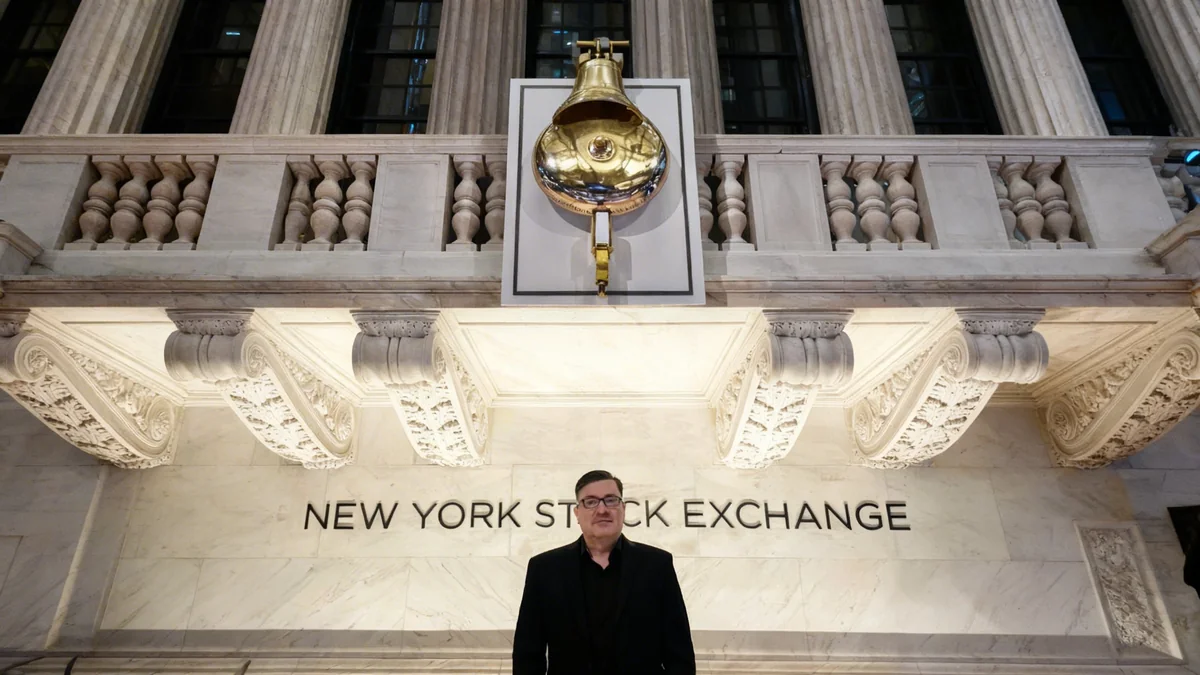A new blockchain-based platform named RAVAULT (Real Asset Vault) has initiated the presale for its native digital currency, the $RAVAULT Coin ($RAVC). The company aims to make real estate investment more accessible by converting property ownership into digital tokens, backed by an initial portfolio of $2 billion CAD in real estate assets.
The Toronto-based project intends to bridge traditional property markets with decentralized finance (DeFi), allowing individuals to buy and sell fractional ownership of properties. An additional $4 billion CAD in real estate is reportedly in the pipeline to be added to the platform's holdings.
Key Takeaways
- RAVAULT has launched a presale for its $RAVC token, which represents a stake in a real estate portfolio.
- The platform is backed by $2 billion CAD in existing real estate assets, with plans to add another $4 billion CAD.
- The system uses NFTs on the Ethereum blockchain to represent ownership of individual properties.
- Token holders can stake their $RAVC to earn yields from rental income and property appreciation.
- The company has confirmed future listings on the Biconomy exchange and is in discussions with Bitmart.
A New Approach to Property Investment
RAVAULT's primary goal is to address the illiquidity and high barrier to entry common in traditional real estate markets. By tokenizing assets, the platform allows for fractional ownership, meaning investors can purchase small shares of high-value properties rather than needing to acquire an entire building or unit.
This model is designed to provide liquidity to an otherwise static asset class, enabling shares to be traded globally on digital exchanges. According to the company, this structure will open up institutional-grade investment opportunities to a broader audience that has historically been excluded from such markets.
A representative from G Group Development Inc., a partner in the project, commented on the shifting financial landscape. "The environment of financing has changed and we want to explore new ways that investors can participate in our projects," the representative stated. "RAVAULT enables tokenized real world asset trading on a global scale for everyone."
Technology and Asset Backing
The RAVAULT ecosystem is built on the Ethereum blockchain. Each real estate asset, from income-generating rental properties to larger development projects, is represented as a unique Non-Fungible Token (NFT). These NFTs serve as digital proof of ownership and collateral within the system.
The value of the platform's main currency, the fungible $RAVC token, is directly linked to the total value of this growing pool of real estate-backed NFTs. This structure is intended to provide a more stable, asset-backed cryptocurrency compared to purely speculative digital assets.
Portfolio at a Glance
- Initial Assets: $2 billion CAD
- Pipeline Assets: $4 billion CAD
- Asset Types: Income-generating rentals, development projects
- Blockchain: Ethereum
Earning Yield Through Staking
A core feature for investors is the ability to "stake" their $RAVC tokens. Staking involves locking up the tokens in a smart contract on the platform. In return, stakers are eligible to receive monthly distributions.
These payouts are generated from the real-world performance of the underlying property portfolio, including rental income collected from tenants and profits from asset appreciation. This mechanism creates a direct link between the digital token and the financial returns of the physical real estate.
AI-Powered Operations
To manage its operations, RAVAULT has developed an artificial intelligence system named ELLIE AI. The company describes it as an "AI employee" designed to handle customer service and administrative tasks.
Its functions include providing 24/7 phone support, automating service requests, scheduling appointments in real-time, and sending out reminders and email notifications. This integration of AI is aimed at improving operational efficiency and user experience.
Leadership and Strategic Vision
The project is led by a team with experience spanning real estate, technology, and finance. Co-Founder and CEO Xavier Jehovah, described as an early blockchain builder, was responsible for securing the partnerships that form the company's $4 billion asset pipeline.
The technical architecture was developed by Co-Founder and CTO Abdullah Humayun. The team also includes COO Attilio Polsinelli, who oversees operations, and CMO Keysean Powell, who brings over eight years of experience in the real-world asset sector.
"We have achieved over a billion dollars in construction successfully," said a representative from partner G Group Development Inc., highlighting the real estate experience behind the venture.
Compliance and Market Entry Strategy
RAVAULT has emphasized its commitment to regulatory compliance, a critical factor in the tokenized asset space. The company has engaged Miller Thomson LLP, a prominent Canadian law firm, to guide its compliance framework and ensure it adheres to relevant financial regulations.
What Are Real-World Assets (RWA)?
Real-World Assets (RWA) refer to physical or traditional financial assets that are represented as digital tokens on a blockchain. This can include real estate, art, commodities, or private credit. Tokenization aims to make these assets more divisible, liquid, and easily transferable on a global scale.
Following the presale period, RAVAULT plans to list the $RAVC token on several cryptocurrency exchanges to provide liquidity for investors. A listing is confirmed with Biconomy, and the company reports it is in advanced talks with Bitmart. A listing on the data aggregator CoinGecko is also planned.
The team has already engaged with the industry at events like Consensus 2024 in Toronto and plans to continue its outreach at other global conferences. The official launch of the full RAVAULT platform is scheduled for the third quarter of 2025. The current presale offers early participants an opportunity to acquire tokens before they become publicly available on exchanges.





